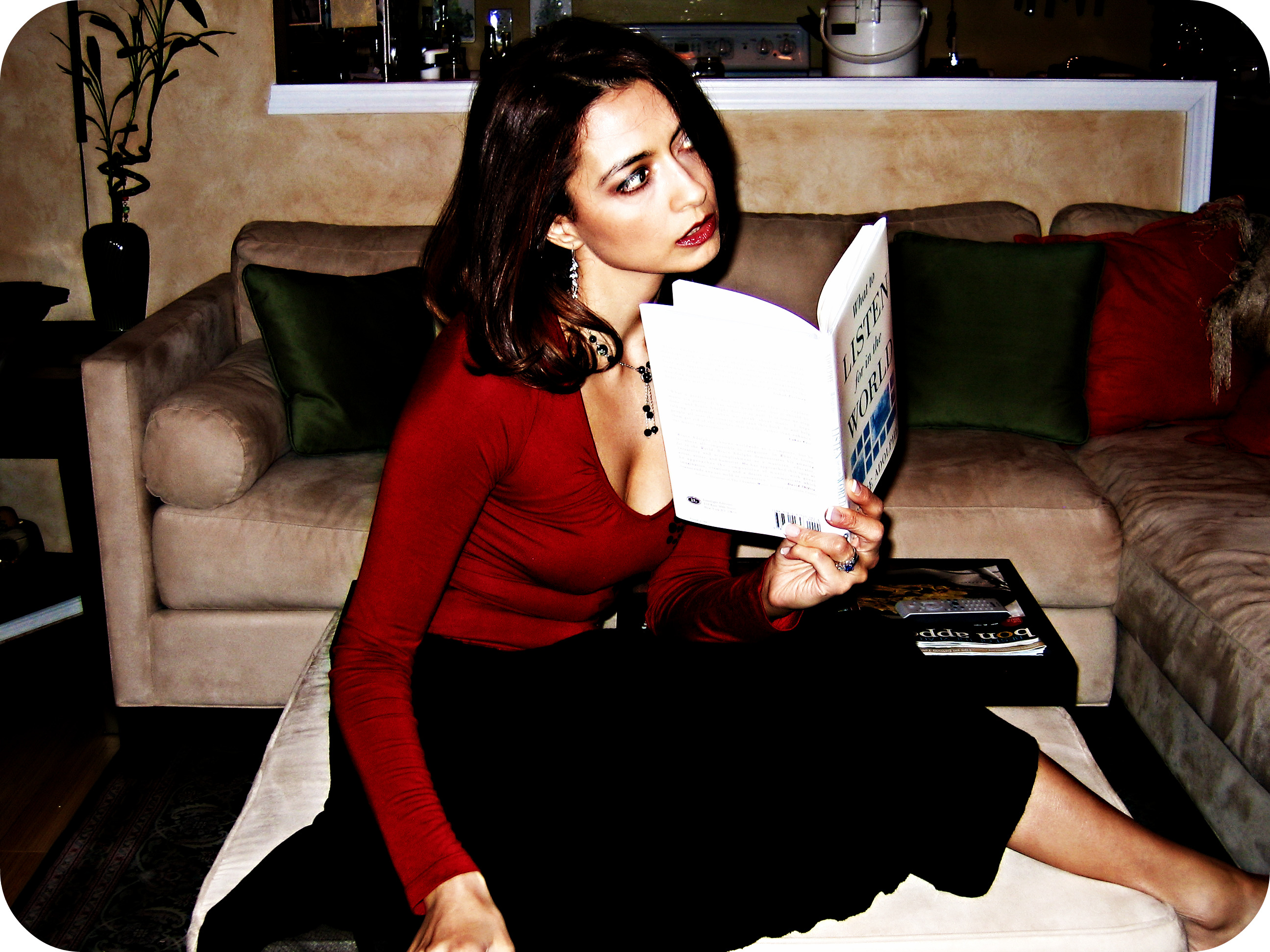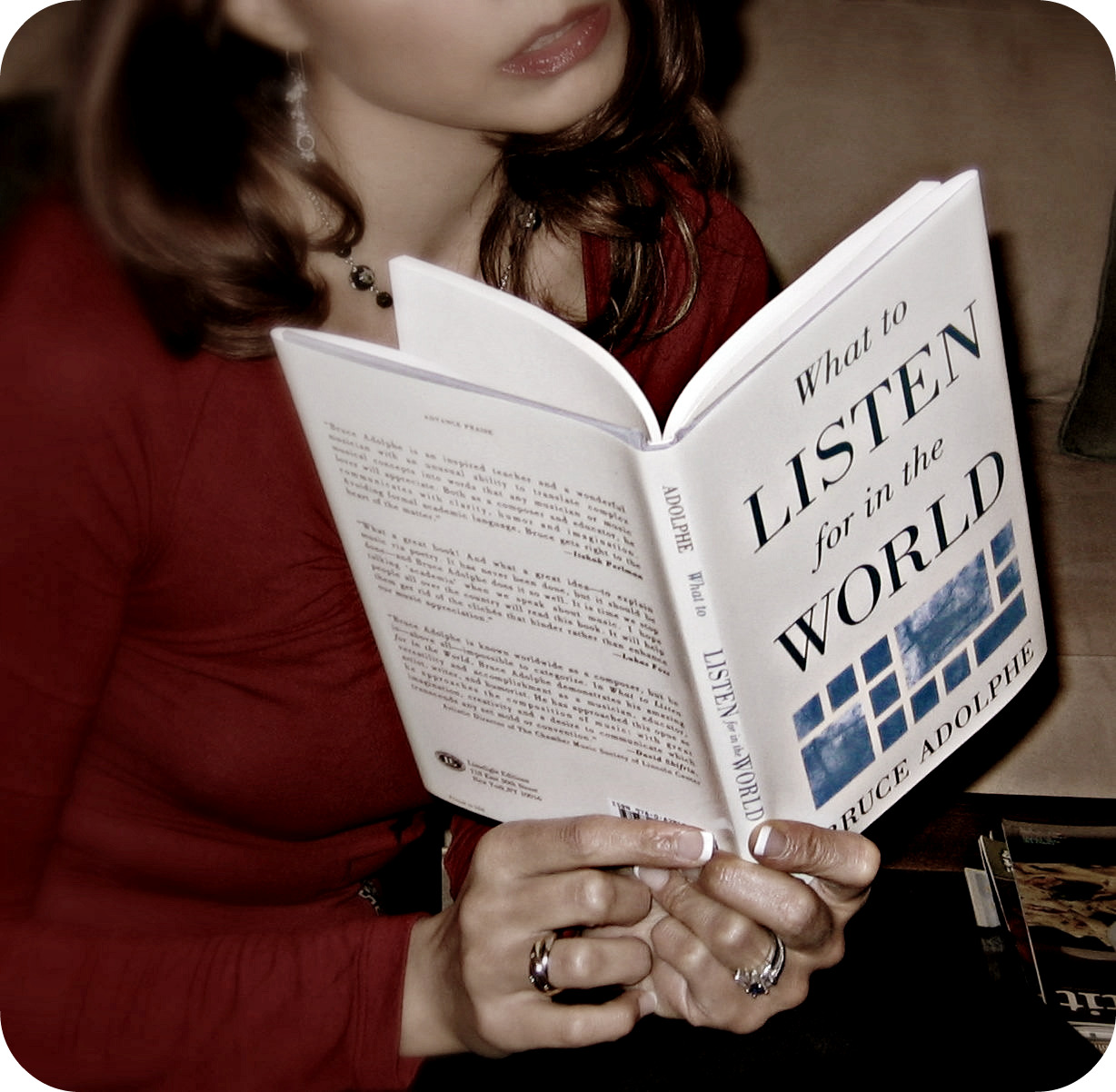The Charlotte Symphony at Belk Theater was playing Schumann’s Piano Concerto in A Minor and Dvorak’s Symphony No. 8 in G Major on October 3rd, 2008. The conductor was the remarkable Andrew Grams and the pianist was the talented Ingrid Fliter. This was not my first symphony. Or my second. My husband’s passion for classical music extends beyond playing lovely pieces on the piano or tuning into the classical channel at home. In 2003, I sat through London Symphony’s Beethoven, Symphonies No.4 and No.5 and Piano Concerto No.1, some of the world’s most well-known music. Even then, in one of the world’s premier concert halls, the music still did not penetrate through me as it did during this concert in Charlotte.

The symphony was just something I did with him. I liked to think of going to the symphony – the idea was appealing to my sense of style and I wanted to appreciate good music, to boot. So I tried. Frankly, I prefer Shakespeare plays, drama, musicals and Argentine tango. Even so, I would always be green with envy, watching my husband’s appreciation and joy of classical music, while I fought hard to stay alert for the second half of the performance.
On October 3rd, as I sat with mild enthusiasm in the Belk Theater, marveling at the 70-person orchestra before me, I imagined hearing another beautiful symphony that I would again barely know how to appreciate. That was not to be the case. Into the first half of piano concerto, my body fell into stillness, and my mind fell into a trance. What followed in the next few minutes was remarkable. It is as though the hand of time placed me gently from that theater seat into the middle of my childhood, transporting me into the most sacred place I knew as a little girl: my grandparents’ house in Iran.
It has been a very long time since anyone in our family has referred to the house, and longer since I have thought back to it. And yet, I was running about this house, and seeing the exact floor-plan, flow, furniture, and vibe, as though I never left. I was hearing my grandfather’s voice talking to me – something I have tried so hard to to remember in vain. I could feel my grandmother’s presence in the kitchen. My eyes were transfixed on the orchestra, and the more I focused on the music, the deeper I went into my memory bank. When the music stopped for intermission at the top of the hour, I could not move. I had just experienced the miracle of classical music and it was finally obvious to me why this music is eternal and everlasting.
Bruce Adolphe’s book, “What to Listen for in the World“, was on my husband’s Christmas list wish; funny how it turned out to be the perfect gift for me. Overwhelmed by the Charlotte experience, I made a decision to delve more into classical music. After transferring 800 classical pieces into my iTunes library for my new found interest, I settled with Adolphe’s book in the hot tub on a cold winter night. As the iPod cycled through Beethoven and Bach, Chopin and Schubert, I slowly turned the pages of this book in my candlelight, and read every poem in low audible voice to myself.
Poetry about music and music about life is the sum of Bruce Adolphe’s excellent read. He tells us that musicians have a special biology, and that musicians the world over are more like each other than they are like the people from their own countries. They exist in a different medium; they hear and listen on levels that ordinary people are incapable of. They certainly speak a language only they can comprehend and converse in. In the course of this short book, Adolphe attempts to pass on the wisdom of the musician through prose and poetry about life. He meets his goal well, despite the poor choice of illustrations by Vijay Kumar – splotches of varying shades of black referred to as artwork for the book – which deliver no purpose whatsoever and should be stripped from future editions of the book.
I quote fragments of some of my favorite poems:
“Music must be very personal:
only then will it be universal.
We recognize ourselves in others,
not in generalizations about others” -pg.16
“True music is balanced, eternal.
True music does not need to entertain, but may.
False music is all about style…..
True music transcends style” -pg. 28
My ultimate favorite lines:
“Empires collapse,
wars and politics are forgotten or romanticized,
families are divided and lost,
history is revised,
but music – ephemeral though it seems –
endures” -pg.45
Reading is the best pastime for an active mind! If you like to see the other book reviews, check the index of In Print.

At first, I was disappointed to be reading poems rather than stories. Disappointment took leave as I continued reading and listening to the classical music filling the air. By the end of the evening, I had finished the last poem. In the course of one evening, I had opened a small window into a new world for me: that of appreciation and absorption of this eternal music in hopes of letting it transport me again to the place I cannot go unaided……..to the days of my childhood, to the details of my memories, to the blurry edges of my mind, if only for a few minutes to behold and treasure them. To believe that even though decades have passed, I can find my way back to those days anytime. To know that they live, and always will, in the windmills of my mind.
 I am Farnoosh, the founder of Prolific Living. So glad you are here. My mission is to empower you to unblock your creative genius to live your dream life.
I am Farnoosh, the founder of Prolific Living. So glad you are here. My mission is to empower you to unblock your creative genius to live your dream life.